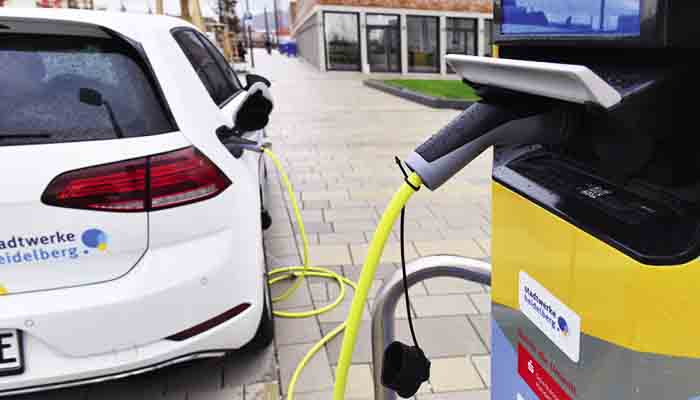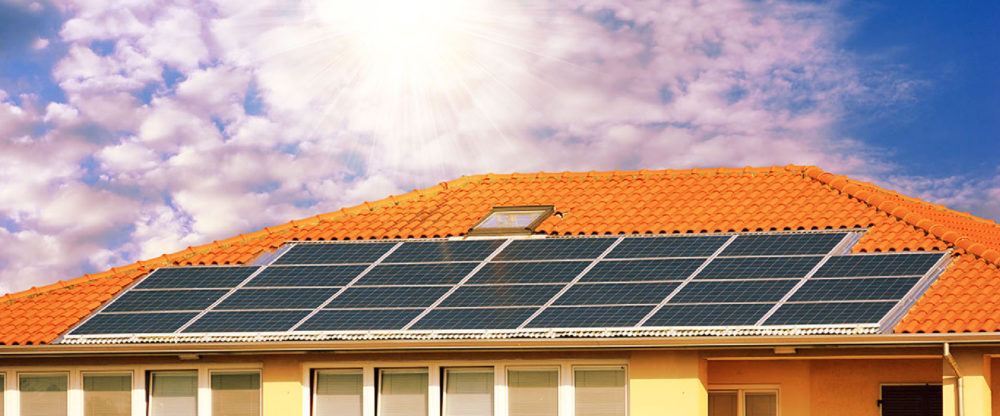Electric vehicles help slash payback periods for residential PV

The Institute for Energy Economics and Financial Analysis has estimated the effect on the payback period of PV systems when adding EVs and storage in Germany and Britain. In both cases, system owners are likely to reduce their payback period by significant margins as increased self-consumption can offset the incremental phase out of government incentives.
Combining a 4 kW residential solar rooftop system with battery storage of a similar size, and a small EV with 35 kWh capacity, would ensure a payback time of four years for the lot in Britain in 2025. With feed-in and export tariffs largely phased out, and discounted VAT on solar products set to be removed, the payback period for just the solar system could be more than 20 years, with a return on investment rate of minus-3%.
Britain’s solar industry is not alone in facing a steady reduction in subsidies for residential solar, with other European markets planning an incremental phase out of government support. The Institute for Energy Economics and Financial Analysis (IEEFA) has examined how the interplay of electric vehicles and battery storage systems with rooftop solar can offset that trend and make clean energy technology an attractive option.
The institute’s Electric Vehicles and Batteries can Drive Growth of Residential Solar report considered German and British residential solar to determine the economic effects of using an EV to ramp up self-consumption, and ideally using storage and bi-directional EV charging to provide grid ancillary services.
“Our analytical approach was to estimate how many years of electricity bill, road fuel and other savings it would take for households to recoup their initial investment on various combinations of solar, batteries and EVs,” the report reads. “The models were developed using actual cost data, as provided by a range of solar battery and EV providers in Britain and Germany. Various cost reduction assumptions were made to calculate the payback periods for new projects through 2030.”
Germans get faster payback
In Britain, with the current low VAT regime for solar products, the payback time for a standalone solar system is estimated at 19 years, with an annual return on investment of -2.7%. By contrast, German system owners, thanks to higher electricity retail prices and a higher feed-in tariff regime, can expect to pay back their system price after six years, with an annual return on investment of 10.3%. The report highlights the simple addition of a smart device that manages controllable loads, such as heat pumps and hot water boilers, can halve the payback period in Britain and significantly reduce it in Germany.
Since electricity prices are relatively low in Britain and support schemes for EVs are in place, the combination of EVs and solar systems can reduce the expected payback period to nine years, with a return on investment of 0.9%. In Germany, that would be seven years, at an ROI of 6.4%.
“Generous renewable energy subsidies have had their day but scrapping these entirely and replacing them with nothing will damage renewables markets,” said Gerard Wynn, IEEFA energy analyst and co-author of the report. “The falling cost of battery storage and EVs can drive new growth in renewables in Europe but only if these low-carbon technologies have the same access to electricity network markets as fossil-fuel based ones.”
The combination of EV battery storage and a solar rooftop would prompt a payback period of just four years in Britain, and three in Germany, in 2025. By 2030, the trend would continue to give money back on the investment after less than a year. According to the authors of the report, regulators should accelerate the adoption of solar rooftops and battery storage by allowing the resources to compete on a level playing field in electricity markets.
“In Britain, that includes introducing new market rules that pay households for exporting solar power to the grid, at least at wholesale power market rates,” the report’s authors wrote. “In both Britain and Germany it will also entail improving access for residential energy systems to grid services markets, for example via virtual aggregation of batteries.”


